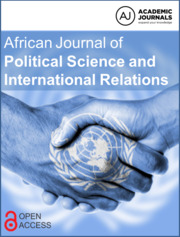Researchers L.A. Afinotan and V. Ojakorotu deal in this paper (2009) with issues and prospects about Nigeria’s Niger Delta.
Indeed, “Nigeria’s Niger Delta region is not only home to the greater part of Africa’s largest mangrove forest, but also the source of Nigeria’s oil wealth. Here, in this amazing network of creeks, and an aquatic splendor comprising marine, brackish and freshwater ecosystems, lie the operational bases of a kaleidoscope of ethnic militia and insurgent organizations dedicated to the socio-economic emancipation of the Niger Delta peoples. These have culminated in the Niger Delta Crisis. Thus, the area has become a hot bed of violence, insurgency, kidnapping, hostage-taking, oil pipeline sabotage, crude oil theft, gang wars, internecine struggles and so much else by way of anarchy and chaos. Making use of library research and content analysis methodologies, the paper detailed in a systematic manner the real issues involved in the struggle, from the perspectives of the Nigerian State, the Niger Delta communities, and the oil Companies. The paper identified and analysed the major challenges posed by this crisis to the Nigerian State. It concluded that in spite of the continuing deterioration of the crisis into anarchy, terror and a revolving criminality, and the militarization of the region by the Nigerian state, the conflict can still be amicably resolved. It recommended among other things that the commitment of government to infrastructural development of the region and corporate social responsibility would bring enduring peace and stability. The provision of basic infrastructure in the Niger Delta is a sine-qua-non for sustainable development in the region.”
